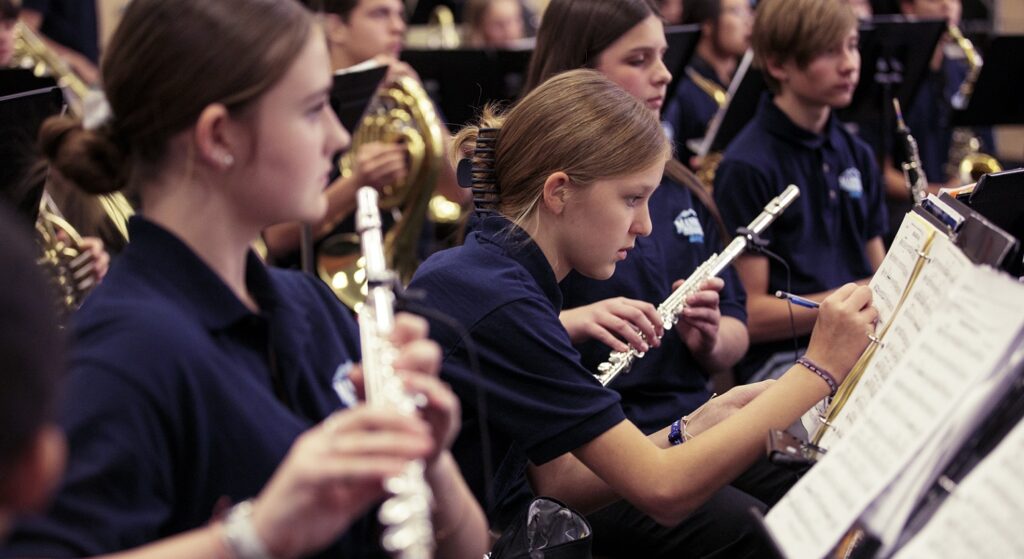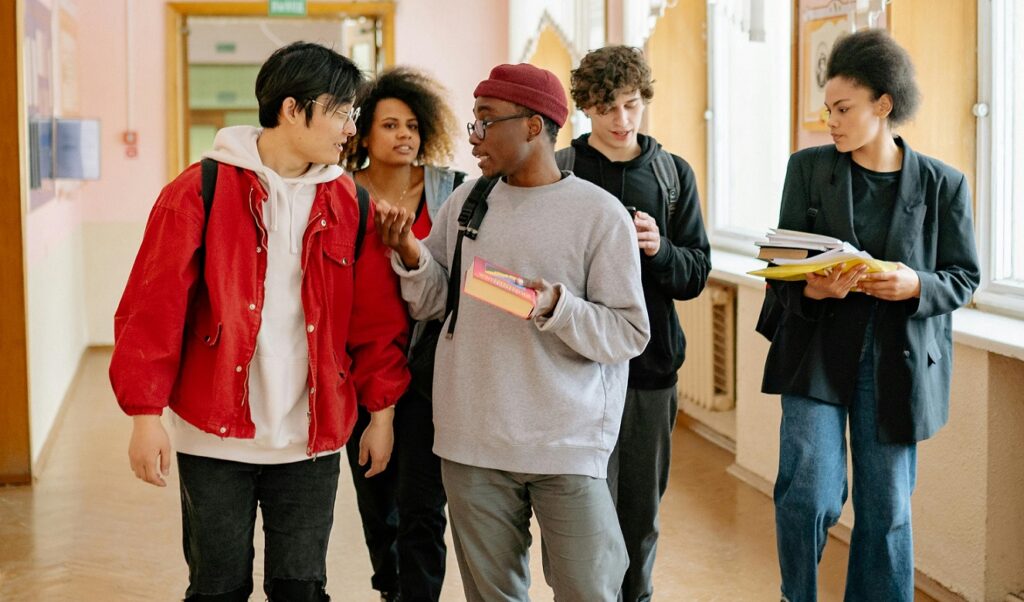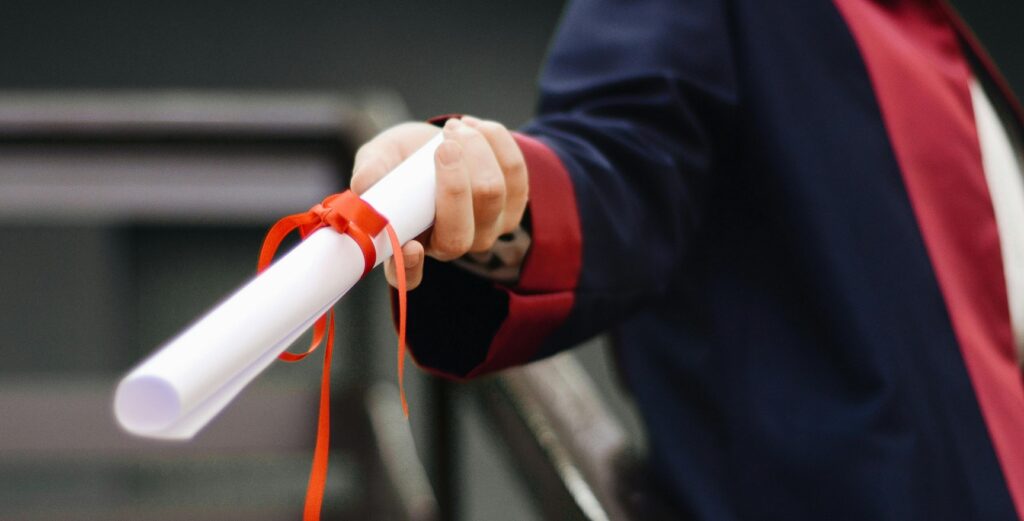Tagged Under:
Expert Tips for Navigating Your First Festival
Be prepared for this exciting step in your music educator career with our real-world guide that includes detailed planning mixed with the need for adaptability so you can enjoy the moment.
Staging your first major concert or festival is a landmark event in an early music educator’s career. It is a journey full of excitement, learning and certainly a few nerves. Being well-prepared is a must for this adventure. To aid you on this pathway, we present some tips and insights grounded in real experiences to help you keep your cool on performance day, even if the brass section left half their equipment back home, 20 miles away!
Meticulous Preparation is Required
Performance Selection: The mantra “under program and overperform” should be your guiding principle. Choose pieces that resonate well with your group’s competency rather than gravitating toward the most challenging compositions. Strive to excel in your chosen pieces, creating a performance that stands tall in its own right. If anyone who isn’t a clinician criticizes you for your program selections, either don’t engage or ask them what they would have programmed instead. Remember, we’re always learning. If a clinician suggests something, it’s worth considering … heavily.
Clinician’s Assistance: Engaging a clinician early on in your preparation is a wise strategy. Their experience can be a guiding light and will help shape a performance that resonates with professionalism and excellence. Many experienced directors who were apprehensive to have a clinician visit their school often confess that they wish they had done this sooner.
Dress Rehearsal: This is exactly what it sounds like — a rehearsal of the big day, which will help identify kinks and iron them out. It also ensures that the performance is as seamless as possible. Some groups do a dress rehearsal without uniforms, but we recommend replicating the festival experience as closely as possible. Fixing a concert uniform issue the night before is significantly less stressful than dealing with it the day of (and hours before) the performance.
THE YAMAHA EDUCATOR NEWSLETTER: Energize your creativity as you build your music program!
Attend to the Minutiae
Parent Volunteers: The assistance of parent volunteers can be a cornerstone in efficiently handling various logistics. From supervising uniformity to chaperoning buses and helping with folders, their aid can be indispensable. We have no qualms about leaning on our chaperones. There are too many things for us to remember during the day, and parent help is much appreciated.
Essential Repair Kit: An emergency repair kit complete with reeds, valve oil and small screwdrivers can be a true savior in addressing instrument mishaps promptly. We typically pack at least three reeds per instrument.
Health and Safety: Advocating for student welfare, especially during marching band events on hot days, is imperative. Guide them to prioritize their wellbeing above all.

Multiple Directors: Some schools only have one director, who handles everything. If you work with another director, don’t be afraid to cover details and ask questions. In our time as a co-director or assistant, we would rather annoy our colleagues with too many questions than frustrate them with emergencies on the day of the event.
Remember, it’s just music! If there is an option to register for comments only, or exhibition performance in marching band, consider taking it. This will alleviate quite a bit of stress for you, and the educational process will still hold firm.
Transportation Rules
Bus Delays: This is completely out of your control, so just roll with it. This may be your first time at a major event, but trust in the experience of the festival organizers to manage such issues with care. We have never had festival organizers say, “Sorry, you can’t perform because your buses were late.”
Also, don’t blame the drivers. We are experiencing bus driver shortages everywhere and added stress does not help anyone.
Permission slips: Have copies of these with you. If they have parent contact information, make sure they are in alphabetical order, and don’t forget to shred them at the school afterward.

Same Seats Both Ways: Some directors like to be nice and let kids change buses or sit anywhere they want. We have found that this just makes things more difficult for attendance. We stand firm on the same-seats, same-bus method for getting to and from the event. Our flexibility is that once attendance is taken for the return trip, the kids can change seats on the same bus, but only before the bus starts moving.
D-Day Strategies

Eat and Drink: We’re talking to you, directors. We often hit the ground running as soon as we arrive at school and don’t take a break until we get home 12 hours later. You can’t do this on festival day. Pack some healthy food options and set an alarm to eat and drink (just make sure that your alarm doesn’t go off during the performance!).
Sheet Music: The first order of business is to ensure the availability and organization of sheet music. Rely on original, numbered scores, and steer clear of photocopies. Always have a spare set to circumvent unforeseen circumstances. Many of us have attended performances and have forgotten the sheet music. It was stressful at the time, but we’re still here! In some cases, we borrowed a set from the school, and in other extreme cases, we simply had to skip the pieces that we did not have on hand.
Stage Setup: Give time for kids to adjust to being on stage. Some directors feel like they have to rush, which results in kids playing with music stands that are at an incorrect height, or they are seated incorrectly. It may feel like an eternity but take a few seconds to ensure that everyone is comfortable and seated in positions where they are normally seated.
Weather: If the event is an outdoor performance, monitor the weather and use your best judgment. If your group has to wait to enter the parade because your kids look like they need water, then your priority goes to the students’ wellbeing.
Footwear: You are going to be walking a lot. We learned the hard way that our concert shoes, whether they are winged-tip dress shoes or heels, are not good choices for schlepping equipment back and forth and running between warm-up and performance areas. Pack a set of comfortable shoes to ensure ease of movement and comfort during the hustle and bustle of the day.
Stress + Stress = More Stress
Kids will forget things or mishaps will occur. These things are unavoidable. Do not react with frustration and stress. Look at these situations as opportunities to solve a problem together. If you are stressed, it’s OK to tell a student, “I need a minute.” This can save face and allow you to return to the student calmly, so you can both find a replacement trombone slide.

Concert Etiquette: Prep your students on being a good audience — they should be excited to listen to other groups! However, we suggest that if your group is new to major performances or festivals, avoid listening to other groups before their own performance. Other groups can certainly be inspiring, but your students can become intimidated by other ensembles, which will affect their performance. Try to schedule time to listen afterward, if possible.
Percussion Specifics
Percussion has its own set of rules and intricacies. Ensure that you have all percussion items accounted for and that specific students are responsible for these items. On the day of the event, particularly with younger bands, have students open their cases and show you the instruments they are responsible for.
The Ready Sign: Before we begin a piece, every percussionist must acknowledge us before we start. The easiest way is a thumbs up.
Pedal to the Metal: Check the timpani ahead of time. More than a few times, our kids have had to adjust to a pedal system that they weren’t used to.
Bringing it Home
Acknowledgments: Say thank you to everyone involved: parents, bus drivers, colleagues and especially the students. This can help create a nurturing and appreciative atmosphere that everyone will want to continue participating in. We have had many parents experience some crazy festival days, but they continue to come back because they feel appreciated.
The Perfect Bow: We also must remember to say thank you to our audience. Remember to bow and acknowledge those who came out to listen to your group. How long should you bow? Here’s what we tell our students: As long as it takes to say “peanut butter and jelly sandwiches” in your head.

Pre- and Post-Performance Analyses: Encourage students to reflect on their performance, which fosters a culture of continuous learning and growth. Sharing constructive feedback and celebrating the success can be a great learning experience. Some kids will state how much they enjoyed the performances, while other kids will complain that the pizza wasn’t good. It’s all part of the process.
Other Believe-it-Not Tips for Success
Here are a few other tips to ensure success. Or, at the very least, avoid some embarrassment. If this advice sounds oddly specific, it’s because we’ve been there. Trust us!
- Have good relationships with other directors. Help whenever asked. You never know when you might need to borrow a concert snare 10 minutes before your performance. (Thanks, Mark!)
- Let chaperones know that the buses should not leave without the director! If you go inside to get “one more thing,” make sure you have the head chaperone’s number so you can get the buses to turn back around to get you! Or, you may give up after 20 minutes and drive yourself to the event, which steals invaluable bonding time with your students or time for last-minute planning with your fellow directors.

- Check your concert programs, then check them again. Have the kids sign off on their names, and then check them again. Don’t be surprised when you have to apologize to the parents for leaving the baritones off the program.
- When bowing from the podium, be mindful of the safety rail. If you happen to hit your head on said safety rail, ignore it. The kids will think that your watering eyes are because of their stellar performance, not your excruciating pain.
- “Bobby, do you have your folder?” “Yeah, Jeff says he’s taking it.” Jeff didn’t even show up that morning, and he’s definitely not bringing Bobby’s folder. Make students be responsible for their own items. The most common reason we have left items behind was because kids relied on someone else.
- Tell kids ahead of time that when they’re in the audience they should not hum along with pieces they know.
- If you lose grip of your baton and it flies out of your hand and onto the floor, or worse yet, into the hair of the flute player in front of you, just let it go. It’s gone.

- Avoid scheduling a time-sensitive event, such as a dinner, movie or show, after your performance. An event that runs late coupled with students who still need to be picked up may deter any plans you have.
- If your background is band and you end up taking a job that has a choir element, be prepared for a choral performance where the surprise guest speaker just happens to be Julie Andrews. Yes, that Julie Andrews. No pressure.
Remember, the road to a successful performance is paved with detailed planning paired with a spirit of adaptability to embrace the spontaneity of the live performances.
We are cheering you on as you take this significant step in your musical career, wishing you a journey filled with success, learning and sharing in musical experiences!
















